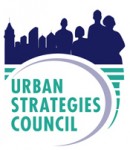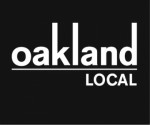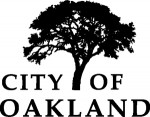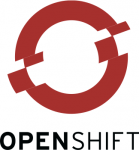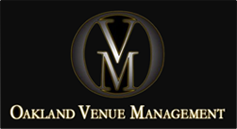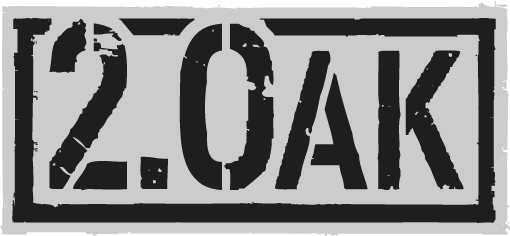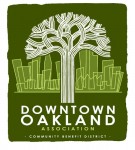Code for Oakland Hackathon 2012 Prizes!!!
These are our prizes for the 2012 hackathon event:
- Grand Prize: $1,000 plus an amazing launch support package from Socrata
- Runner-up Prize: $1,000
- Best Civic Engagement app: $500 (sponsored by Urban Strategies Council)
- Best use of Public Data prize: $500 (sponsored by the City of Oakland)
- Best App to support/sustain/attract local businesses: $500 (sponsored by Tumis)
- Best Education focused app: $500
- Youth Prize for teams with majority youth under 21: $250 (for an idea or an app from a minor)
These bonus prizes may be awarded separately or as an additional prize for the main winners above:
- Bonus prize for REUSING other apps from hackathons or opensourced tools: $500 requires Significant reuse- not just a redeployment

- Bonus prize for use of ideas from Neighborland listening sessions: $250
- Bonus for best multi-platform app: $250
Code for Oakland Hackathon 2012: Judging criteria
Our judges for the 2012 event are now finalized:
Dan Turner: UCB MIMS
Alfonso Dominguez: Popuphood
Kiran Jain: City of Oakland Attorney’s Office
Libby Schaaf: City Council Member
Jason Young: Mindblown Lans
At Code for Oakland, here are the criteria by which projects in the hackathon will be judged:
Teams at this hackathon will be building native mobile apps, mobile web apps, or other mobile services that will be either fully or partially functional…
Teams should be able to show enough to demonstrate their full vision, and how they intend to implement it technologically. Incomplete parts of projects may be represented by wireframes or other plan documents.
The goal of this hackathon is to create or begin development of new resources and tools that:
- Improve civic engagement
- Improve digital education and literacy
- Support, sustain and help to attract small businesses in Oakland
- Support economic development in Oakland
These goals are independent: Projects may not achieve all of them, but should strive to achieve at least one!
How do winners get their awards?
The winning teams on the saturday hackathon will receive half of the cash prizes on the day- we’ll get your details of the team and get checks to every member however you decide to split the money. The catch- to get the full amount of the prizes you must work on your project and be able to show the judges a working, live prototype before September 26- the final award and cash prizes will be delivered at a ceremony at the next InOak/2.Oak Innovation awards night on Sept 26! We know it’s next to impossible to complete a full app in less than a day, this way we hope the prize money up front is great reward for your awesome work and also a good incentive to finish and hopefully launch your app for our community!
How to earn points in the judging
Judges assign points to each project based on how well it meets the goals of the hackathon, how technically strong the concept is, how well it meets a local need and just how much we love the idea. They will use this scale:
5 points: Exceeds one or more Brief goals in an innovative way
4 points: Moderately exceeds one or more Brief goals.
3 points: Meets one or more Brief goals.
2 points: Nearly meets at least one Brief goal.
1 point: Doesn’t meet any Brief goal, but gets a point for participating.
Bonus points: In addition to the points awarded by the judges, this hackathon also is awarding bonus points to encourage hack teams to create projects that are accessible and usable to the 70% of mobile users who do not have a smartphone or tablet.
So consider how to make some parts of your service usable and accessible to people who only have feature phones. These handsets generally lack a full featured browser, but they may have a simple microbrowser. They also can often use e-mail, and text/photo/video messaging. And they’re all phones — so consider systems that people could call into and use a phone tree to access audio or otherwise interact with your service.
Mobile channels:
- Native smartphone/tablet app: Designed to run on a specific mobile platform, such as iOS, Android, BlackBerry, etc. Note: You only get one point for having any smartphone app(s). So if you pound out both an iPad and Android app today, you’ll only get one point.
- Mobile web app: Delivering interactive functionality via a web browser in a format that’s optimized for mobile devices. Note: This is not about publishing a conventional web site or page. To get the point, you need to provide some core interactive functionality through the browser.
- SMS text messaging: Delivering some core functionality/interactivity (including sending out alerts or updates) via text messaging. All SMS services must be opt-in.
- E-mail: Delivering some core functionality/interactivity (including sending out alerts or updates) via text messaging. All e-mail services must be opt-in.
- Feature phone app: Many feature phones can run simple Javascript-based apps, often available through platforms such as Snaptu and Getjar
- MMS multimedia messaging: Delivering some core functionality/interactivity via photo or video messaging — especially making use of photos or videos that users might submit from their phones. All MMS services must be opt-in.
- Audio: These are phones, after all! How could users call in and interact with your service — to access audio information, submit a report or query, etc. A phone tree tool like Asterisk might help here.
Teams will receive one bonus point for each mobile channel that their project uses.
Teams are not required to create projects that use multiple mobile channels — but this competition does reward teams that choose to do this.
BUILD AS MUCH AS YOU CAN: We have limited time today, so prioritize your hacking time to demonstrate the core functionality with a working prototype as much as possible.
For the parts of your project that you don’t have time to build, wireframe or sketch out how the other parts would work in a way that you can explain it in your presentation. Be prepared to explain how you would implement the technology for the parts you weren’t able to complete.
Presentations:
Hack teams must see Eddie Tejeda, Susan Mernit or Deb Acosta between 4-4:30 to sign up for a 3-5 minute presentation time slot. At this time, Eddie will also calculate your bonus points for the number of mobile channels you project includes.
Presentations will be delivered in the auditorium from 4:30-5:30pm. At that time, the judges will award points for compliance with the Apps for Community Brief goals. The judges will then deliberate, and prizes will be awarded starting at 5:45 pm.

